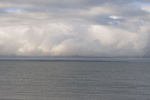Two big players in seafood today announced that they are changing the way their fish are caught. Mitsubishi, which owns the UK’s most popular brand for tuna in a tin, Princes, and Walmart, which owns Asda, have agreed to stop buying from fishermen who use purse seines fishing in conjunction with fish aggregating devices (FADs) by 2014. These methods have been blamed in part for the vast overfishing of the world’s tuna and helping to decimate other species, such as sharks and rays, as bycatch.
“Today’s announcements by Princes and Asda are great news for sharks, tunas and our oceans,” said David Ritter, head of Greenpeace UK’s oceans campaign, which has been targeting Princes for months to change its policy.
Fish aggregating devices float in the water and attract large schools of tuna and other species to them. Then the massive nets of the purse seine scoops everything up indiscriminately. The companies will still use purse seine fishing, but not with the FADs. Given global overfishing, conservationists generally agree that the most sustainable fishing method is old-fashioned pole and line.
Princes has also agreed not to purchase tuna caught in the Pacific high sea pockets, a region that Greenpeace is pushing as a marine protected area (MPAs).
“This move by Princes and Asda will put enormous pressure on the rest of the global tuna industry to start following sustainable practices. Consumers are not interested in being made complicit in the destruction of oceans by their tuna purchase decisions,” said Sari Tolvanen Greenpeace International oceans campaigner.
Greenpeace has said it will be next targeting John West in the UK, which is owned by Thai Union, the world’s largest seafood company and still uses FADs.
Related articles
Arctic fish catch vastly underreported (by hundreds of thousands of metric tons) for 5 decades
(02/07/2011) From 1950 to 2006 the United Nation Food and Agriculture Agency (FAO) estimated that 12,700 metric tons of fish were caught in the Arctic, giving the impression that the Arctic was a still-pristine ecosystem, remaining underexploited by the world’s fisheries. However, a recent study by the University of British Colombia Fisheries Center and Department of Earth and Ocean Sciences throws cold water on this widespread belief. According to the study, published in Polar Biology, the total Arctic catch from 1950 to 2006 is likely to have been nearly a million metric tons, almost 75 times the FAO’s official record.
The ocean crisis: hope in troubled waters, an interview with Carl Safina

(02/07/2011) Being compared—by more than one reviewer—to Henry Thoreau and Rachel Carson would make any nature writer’s day. But add in effusive reviews that compare one to a jazz musician, Ernest Hemingway, and Charles Darwin, and you have a sense of the praise heaped on Carl Safina for his newest work, The View from Lazy Point: A Natural Year in an Unnatural World. Like Safina’s other books, The View from Lazy Point focuses on the beauty, poetry, and crisis of the world’s oceans and its hundreds-of-thousands of unique inhabitants. Taking the reader on a journey around the world—the Arctic, Antarctic, and the tropics—Safina always returns home to take in the view, and write about the wildlife of his home, i.e. Lazy Point, on Long Island. While Safina’s newest book addresses the many ways in which the ocean is being degraded, depleted, and ultimately imperiled as a living ecosystem (such as overfishing and climate change) it also tweezes out stories of hope by focusing on how single animals survive, and in turn how nature survives in an increasingly human world. However, what makes Safina’s work different than most nature writing is his ability to move seamlessly from contemporary practical problems to the age-old philosophical underpinnings that got us here. By doing so, he points a way forward.
Record high fish consumption keeps populations imperiled
(02/01/2011) More people than ever are eating more fish than ever, according to a new report by the United Nations covering the year 2008. At the same time, fish populations in the world’s oceans continue to decline threatening marine ecosystems, food security, and the fishing industry itself.







